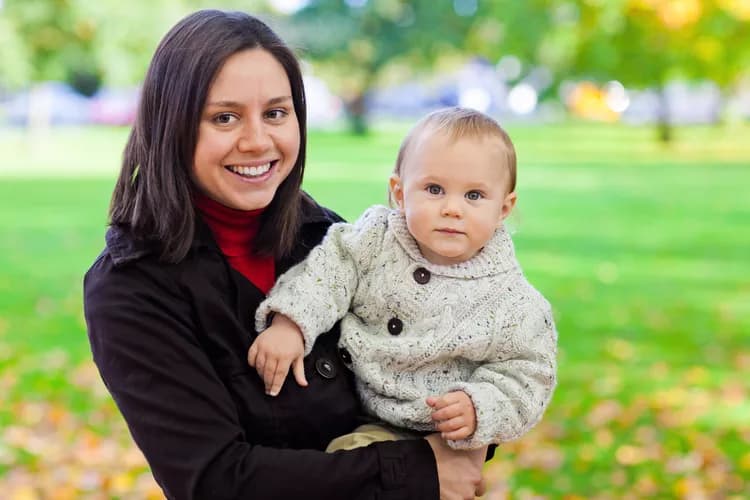
Indigenous Group Add To Evidence Tying Cesarean Birth To Obesity
A Purdue University study of an indigenous group of Maya people reinforces the link between Cesarean births and obesity.
Amanda Veile, an assistant professor of biological anthropology, found that the size of the mother and the method of delivery predict child growth patterns through age 5 in the Yucatec Maya. Her findings, with co-author Karen Kramer of the University of Utah, were published in the American Journal of Human Biology.
"Mothers who have high BMI and had a cesarean are going to have the fattest children in the village," Veile said.
Veile studied 57 Maya mothers and their 108 children born to them between 2007 and 2014, and tracked the children's growth monthly through age 5. About 20 percent of those births were via cesarean.
None of the children were considered obese by World Health Organization reference standards, and only 5 percent were overweight. But Veile said there were notable differences in the sizes of children that suggest that birth method could play a role in how children develop.
A 5-year-old child who had a high birthweight, and was born to a high-BMI mother, for example, would weigh on average 15.5 kg if delivered vaginally. If delivered by cesarean, the child would weigh 17 kg -- nearly 10 percent more.
Veile and Kramer study Yucatec Maya farmers in Mexico because the village children are not impacted by many other factors that are linked to obesity such as high-sugar, high-fat diets or more sedentary lifestyles. Maya children have physically active childhoods and their diet mostly consists of maize, fruits, vegetables and beans. Children are breast fed until weaning at around 2.5 years of age, eliminating bottle feeding as a source of possible weight gain.
Many populations fit those criteria, but the Maya villagers recently gained access to modern health care facilities and hospital births through a series of poverty-alleviation programs. This makes them stand out from other rural or indigenous groups.
"The comparative lack of pre-existing obesity-related confounders allows us to directly observe the impact that birth mode has on early childhood growth, particularly with respect to weight gain," the authors wrote. "However, this link is critical to resolve given the significant global increase in cesarean births and the growing concern of childhood obesity as a public health issue."
One theory about cesarean births and obesity involves the microbiome -- the "good bacteria" of the gut. It's thought that children are exposed to immune-stimulating bacteria from mothers in a vaginal birth. They are not exposed to the "good bacteria" when born via cesarean. Those bacteria go on to colonize the infant gut, and play important roles in the development of immune function and metabolism. Improper colonization of the gut microbiome can lead to obesity and its related diseases.
Veile said the issue is especially pertinent as cesarean rates climb. More than 32 percent of births were via cesarean in the United States in 2014, according to the Centers for Disease Control and Prevention. Many of those cesareans could be unnecessary as the World Health Organization recommends a maximum cesarean rate of 15 percent.
"The cost of unnecessary cesareans are very high in terms of the future public health burden," Veile said.
That's especially true in very rural areas like Yucatan Mexico, where cesareans are on the rise, but health care options for obesity-related diseases are limited.
"There are few health programs that treat obesity and diabetes in these remote settings," Veile said.
Scientists are also interested in whether children born via cesarean could be exposed throughout childhood to bacteria that would bring their microbiomes to more closely resemble those of children born vaginally. Veile plans to continue to work with the Yucatec Maya -- who as subsistence farmers are greatly exposed to bacteria and disease in a tropical environment -- in a comparative study to determine if there are differences in cesarean-linked obesity rates between Maya children and children from populations living in environments that are considered more sanitary.
Materials provided by Purdue University. Original written by Brian Wallheimer. Note: Content may be edited for style and length.
Disclaimer: DoveMed is not responsible for the adapted accuracy of news releases posted to DoveMed by contributing universities and institutions.
Primary Resource:
Veile, A., & Kramer, K. L. (2016). Childhood body mass is positively associated with cesarean birth in Yucatec Maya subsistence farmers. American Journal of Human Biology.
Related Articles
Test Your Knowledge
Asked by users
Related Centers
Related Specialties
Related Physicians
Related Procedures
Related Resources
Join DoveHubs
and connect with fellow professionals

0 Comments
Please log in to post a comment.